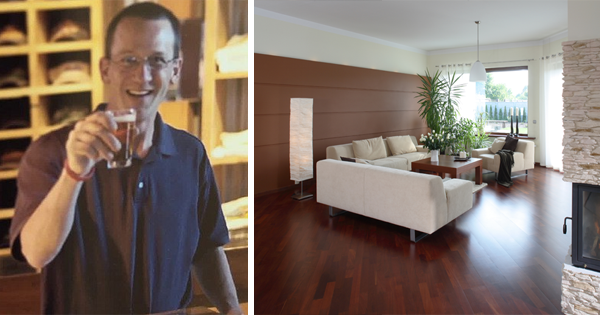When Steve Saling turned 37, he experienced the first symptom of ALS. The pencil he was holding suddenly fell out of his hand. “It was a very peculiar moment. It felt like my hand fell asleep, but there was no reason it should have,” he recalled.
Saling was diagnosed with ALS, amyotrophic lateral sclerosis, a neurodegenerative disease that would gradually take away his ability to control his body and any physical motion. Doctors told Saling he had three to five years before the condition would take his life.
But Saling refused to listen, “From the beginning, I was determined to live another 38 years.”
In the coming months, Saling investigated to see whether he could stop the progression of his disease and keep it contained to his hands, not have it spread to the rest of his body. Once it became abundantly clear to Saling that there was no medical treatment available to do this, Saling changed his focus.
He didn’t want to spend the rest of his life relying on the support of 24-hour care or living in a nursing home. The architect decided then and there that he would redesign his home, so even when he was no longer able to control his body, he would still be able to go around his house and carry out the things he needed to do.
Saling met up with Barry Berman, the CEO of the Chelsea Jewish Foundation, an assisted-living facility in Massachusetts, and earned himself a grant of $500,000 to design a system that would help him – and other ALS patients – navigate their homes even after the disease took over.
That was how Saling created the Promixis Environment Automation Controller (PEAC) that uses a wireless signal to allow ALS patients to open and close doors, call elevators, turn on the TV, dim the lights, and many other household actions using small motions in their eyes, or even via brain waves.

Saling is now living in a home fitted with PEAC systems with three other men who also have ALS, and the four enjoy much time together at home, carrying out their daily functions or just spending time together.
Although Saling lives away from the rest of his family, he still continues to be a part of his 10-year-old son’s life thanks to the power of the PEAC that gives him his independence.
Saling often says, “Don't make the mistake that all of my doctors did and assume that because I am 100% dependent on the care of others for the rest of my life, that I don't have a quality of life. I can't imagine enjoying life more."





